Housing: EBC contributes to the European Commission call for evidence for the European strategy for housing construction
October 3, 2025
The European Builders Confederation (EBC) has submitted its feedback for the European Commission call for evidence for the European strategy for housing construction. The objective of the strategy is to support the construction sector so that it can effectively contribute to closing the gap between housing supply and demand. This initiative will take the form of a Commission communication setting a roadmap of measures to support competitiveness and boost productivity of the construction ecosystem.
For EBC, the key issues are to ensure that innovative methods and standards truly support SMEs in construction, to improve access to affordable and circular materials at local level, to guarantee stable financing that allows SMEs to invest and plan with confidence, and to reduce administrative barriers that often weigh most heavily on smaller enterprises. While cross-border service provision remains complex for SMEs, and not necessarily an objective, worker mobility offers potential to address labour shortages affecting housing construction.
EBC structured its feedback around the five areas mentioned in the call for evidence, with the aim of increasing the competitiveness and productivity of the construction ecosystem and enabling it to meet the demand for housing:
- Supporting lead markets through standards under the Construction Product Regulation for kits and systems that allow innovative construction techniques to be deployed on a large scale: Standards developed within the CPR framework can play a positive role in unlocking innovation, supporting cross-border use, and help SMEs improve compliance, productivity, costs, and access to markets, but they must remain accessible to small operators. Lead markets must not become overly prescriptive, as this would reduce diversity and undermine SMEs’ role. Deploying innovative construction through kits and systems on a large scale cannot replace local practices, so EU strategies must recognise diverse and local approaches. Standards for prefabricated systems and components should allow SMEs to adapt solutions to local conditions and client needs.
- Facilitating access to inputs such as certain essential raw materials and secondary materials through monitoring and setting appropriate end-of-waste criteria, facilitating circular-economy solutions and lowering their cost due to an improved availability of materials: EBC calls for stronger SME access to affordable, local, and circular construction materials by creating regional material banks and shortening supply chains to reduce transport costs and emissions. EBC supports financial incentives for SMEs to adopt circular methods and innovative materials, provided traditional skills are preserved. EBC highlights the need for pilot projects to demonstrate replicability, effective construction and demolition waste (CDW) sorting under the Waste Framework Directive, and subsidies to cover high reuse costs. EBC insists on enforcing the Proximity Principle, VAT policies must also encourage circular practices.
- Facilitating access to finance to reduce the risk linked to the roll-out of innovative products: EBC stresses the importance of a long-term commitment in the EU budget to ensure continued support for construction and renovation, more affordable housing, and SME participation beyond 2027. EBC also stresses that the 2025 mid-term review of cohesion policy must be fully leveraged now, not only to double affordable housing investments but to ensure that pre-financing and 100% EU co-financing rates accelerate local delivery. A clear, stable regulatory environment is essential so SMEs can invest in skills, sustainable products, and digital tools. Explore how the EIB could alleviate the impact of taxes, improve municipal financing, and support rental housing investment. Regulatory sandboxes for flexible solutions and stronger local authority capacity to use EU funds effectively in cooperation with SMEs are also important.
- Supporting the modernisation and simplification of building permit processes to accelerate them and reduce costs: EBC calls for administrative reforms that reduce complexity and costs at local level, avoiding additional complexity from EU legislation and applying the “only once” and “think small first” principles. Permit processes should be digitalised with SME input, zoning simplified, and more land unlocked, including brownfields. Municipalities also need stronger capacity with EU support, assistance desks, and digital tools such as AI tailored to small operators.
- Completing the single market for construction services to allow companies and individuals to offer their services freely across the European Union: EBC emphasises that SMEs are embedded in local communities and cannot be expected to scale across borders like industrial firms due to regulatory, cultural, and qualification barriers. Worker mobility, however, could partially be an opportunity to address labour shortages in housing construction. EBC insists that no housing strategy can succeed without a competent workforce. The streamlining of professional qualifications and a stronger mutual recognition of certifications, particularly in strategic fields like energy efficiency and renewable, could facilitate that SMEs and workers offer services in a wider geographical area.
To explore EBC’s position on housing, we invite you to read our position paper ‘Balancing affordability and sustainability to address the housing crisis: Proposals from SMEs and craft trades in the construction sector.